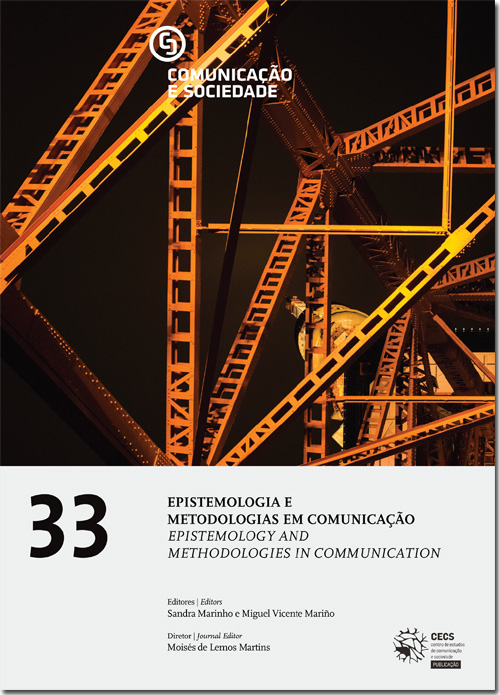Researching co-viewing on social media and instant messaging applications: ethics and challenges
DOI:
https://doi.org/10.17231/comsoc.33(2018).2924Palavras-chave:
Case study, connected platforms, co-viewing, digital methods, informed consentResumo
This article discusses the ethical concerns and challenges that should be considered while studying the practice of co-viewing on social media and instant messaging applications. Co-viewing practices refer to the intertwined activities that happen while viewers sit together in front of a TV set, watching and making meaning from television content. Connected platforms amplify the possibilities for co-viewing, by allowing people to experience a digital co-presence. Users that engaged in connected co-viewing in unofficial Facebook and WhatsApp groups dedicated to the brazilian telenovela Babilônia (airing in 2015) are used to exemplify the need to establish informed consent and avoid harming the participants when carrying out research online. The research reveals that ethical decision-making with respect to users’ data and viewpoints had to be considered, not only at the beginning stages of research, but assessed and considered throughout each step of the study.
Downloads
Downloads
Publicado
Como Citar
Edição
Secção
Licença
Os autores são titulares dos direitos de autor, concedendo à revista o direito de primeira publicação. O trabalho é licenciado com uma Licença Creative Commons - Atribuição 4.0 Internacional.












